- Home
- James Phelan
Survivor
Survivor Read online
ALONE Series by James Phelan
Chasers
Survivor
Quarantine
SURVIVOR
ALONE
JAMES PHELAN
KENSINGTON PUBLISHING CORP.
www.kensingtonbooks.com
All copyrighted material within is Attributor Protected.
Table of Contents
Also by
Title Page
Dedication
then . . .
now . . .
1
2
3
4
5
6
7
8
9
10
11
12
13
14
15
16
17
18
19
20
21
22
23
24
25
26
27
28
29
30
31
32
33
34
35
36
37
38
39
Teaser chapter
ACKNOWLEDGMENTS
Copyright Page
For Tony and Natalie
From childhood’s hour I have not been
As others were; I have not seen
As others saw; I could not bring
My passions from a common spring.
From the same source I have not taken
My sorrow; I could not awaken
My heart to joy at the same tone;
And all I loved, I loved alone.
—from “Alone” by Edgar Allan Poe
then . . .
My name is Felicity, she said. I am recording this from my family home . . .
She looked like she was about eighteen or nineteen. Blond hair, pretty face, kind of how I’d expected an attractive American girl to look. But these were the words this girl spoke into her camera every day: Death. Screaming. Silence. Gunfire. How our world had so quickly changed.
I’d found the camera on top of the TV and had been sitting on her couch, watching the footage for the past half-hour. Scattered around the living room were photos of a happy-looking middle-aged couple and the girl, Felicity.
“How many of you are left?” I asked aloud. Maybe she was now part of an endangered species. Maybe that’s why she was keeping some kind of video diary, so she wouldn’t be lost forever like everyone else.
I remembered the vacant forms of Dave and Anna and Mini as they lay there together: lost, silent, still.
My broken friends.
Back at 30 Rock, I’d ruffled their beds and served them food and pretended not to notice when I scraped it away, like I pretended not to notice so much else. I sat there on the observation decks and took it in shifts by myself. I was the one who broke through the locked door in 59C and used the typewriter in the study. I was the one who had shot a man dead in the street and watched him fall like a tree. My friends had been with me the whole time, but only I had seen them after that first day.
I’d met no other survivors since. I thought it was just me and the Chasers and the hint of those I’d seen from afar. But Felicity was real. Part of me burned to find her, to know that she was okay, a signal fire in my chest.
“Where are you now?” My voice was a whisper, as useful as a single clap in a crowd of applause. My breath fogged but it felt warm in here.
I fast-forwarded to her latest entry:
Earlier this morning I went out to look around for others like me . . . There seem to be groups of people out there but I’d only ever heard them at night. I was too scared to go out and approach them in case they shot me, or worse . . .
“But have you seen them?” I asked the screen. “Have you seen what they do?”
I remembered the first time I saw the Chasers. Among the group of people drinking rain and slush was another, smaller group, hunched over the dead bodies in the street. Like animals. In horror, I realized that their mouths were closed over the bare flesh of those bodies. They were drinking from them. They were drinking everything. Anything.
Felicity continued speaking. Crazed people. They dip their mouths into pools of water as easy as they drink from the dying, from the dead.
“You’ve seen them!” I wanted to punch the air in recognition. Felicity had seen them too. “You must be real. You must be okay.”
Now I knew there really was hope, there really was a world out there, one with survivors like me. I could again let myself wonder what my friends were doing back home in Australia; school would be starting any day, our final year at high school. They’d have so many stories to tell of summer holidays. I’d give it all and then some to hear my dad’s voice, to hear him tell me everything was okay there and that help was on its way—that it would be all right and that they all missed me, that I’d be home soon.
Even the thought of seeing my dragon of a stepmother seemed bearable. And maybe it was time to track down my real mum, if I could just . . .
Felicity turned her head to the side and listened to something off-screen. From the background, I could tell that she’d filmed herself with the camera perched on the coffee table. She was sitting on the leather couch I was sitting on now. She remained quiet, facing left, and I looked in that direction too—towards the door of the apartment. There was a banging noise coming through the camera’s little speaker and it startled me and I saw that she’d also jumped at the sound. She slid down from the couch and sat on the floor, close to the camera, but kept her face pointed towards the front door. I glanced at it again; I’d dead bolted it the previous night as soon as I’d come in.
I paused the video and listened. There it was again; a noise outside. I went to the window and peered through the curtains. No movement out there in the breaking dawn. Silence. A dead streetscape. That hadn’t changed. My breath fogged against the glass as I waited, wrapped in a quilt, watching, searching, imagining.
I pressed play on the camera, just to hear her voice, worried that she would disappear as unexpectedly as she had arrived.
It’s been twelve days since the incident . . .
I paused the tape again. Twelve days? Is that how long I’d been checking the phones and televisions and radios, wanting to hear the sound of anyone’s voice other than my own?
Twelve days ago, I’d taken that subway ride from the UN Secretariat Building towards Lower Manhattan, a trip that saved my life and changed my world.
“I’d been on a leadership camp for senior students,” I told her. “It was meant to teach us about how the world really worked. Some education.”
I waited for her response. Of course it didn’t come. But she was still more alive than the friends I’d had to let go. She was still real to me, so I continued talking to the screen.
“There was a bang and our train carriage rolled and it had been hot and then black and an hour or so later I had come to and by dim flashlight I’d found my way to street level to find the power out and the phones dead. And that was the best of it.”
I remembered seeing that unexploded missile in the street on the first day. All those craters around town, the buildings that had been reduced to rubble. It seemed too big an attack for terrorists. Far too big. Citywide, at least. What with all the radio and TV stations being out, the total lack of response from authorities. This had to be nationwide . . .
The little camera’s battery light was flashing red, reminding me that I could lose Felicity at any moment. I had to be sure what she had said.
Was today day twelve? Or was that yesterday? Was she counting from the day after? Was it
twelve nights that had passed? I started to feel uneasy about how carelessly I’d been marking time.
I pressed play again. There was silence on the camera too. I watched Felicity and she stared back at me. She spoke softer, quieter, closer to the camera:
At first I didn’t see anyone. I stayed clear of Central Park because I’ve seen those sick people congregate there, thousands of them. But this morning I was out getting food, and I found a bicycle and started riding back. The sun was out and for a moment I forgot where I was, what was around me, how the world has changed . . . I ended up riding into the park, as I’ve done with my parents hundreds of times as a kid . . .
She shifted position, sitting up a little straighter and redirecting the camera’s lens so that it didn’t crop off the top half of her face.
It was the lower west corner; you can’t see it clearly from here for the trees. I rode by a group of them. They looked sick, like the others I’ve seen. There were maybe fifty or more. But they were standing around a fire. And there was something about them—they seemed almost . . . friendly.
She looked down at her lap. Perhaps she was flexing and cracking her knuckles with anxiety like I was doing now.
It’s about three o’clock. I’m going back to the park while there’s still daylight. I’m going to see if I can talk to them, to that group.
She was still and watched the camera lens and I felt as though she was staring right at me. She wiped away a tear. I’m sick of being alone. She took a deep breath and let it out, her bottom lip quivering.
I had to meet her! A survivor, like me, someone unafraid to get out there on the streets and try to make something better.
I’ve been alone so long, lost so much, I don’t know who I am anymore . . .
She reached forward and turned off the camera and before me the tiny screen went blue. I switched it off, the screen went black. It was time to go.
I moved fast. I wrote a hope note, the kind of thing I’d seen stuck to buildings around town and flittering through the air and sodden on the ground. The kind of thing you’d do for a missing cat, only these were for people, for loved ones. I scrawled on a piece of paper a few lines describing who I was and explaining that I’d be outside 30 Rock’s entrance at the ice rink at ten o’clock every morning, and to please come and meet me. I left it next to the camera on the table and considered adding my own message on film, but I felt like it might taint what she’d done. Besides, I’ve never really liked myself on camera—my voice comes across all squeaky and strange, not my own.
I took some clean stuff from Felicity’s dad’s wardrobe—socks and underwear, a T-shirt, a flannel shirt—and got dressed. I pulled my jeans on, they still felt a little cold and damp but they’d do, found a knit cap in Felicity’s room, put on my trainers which had dried out overnight and laced them up tight. I re-bandaged my grazed hands, put on a black puffer jacket and zipped it up to my neck. I’d come here with nothing but the clothes on my back and my stupid little flashlight and I would leave with the same but at least feeling fresher.
I stood at the locked apartment door and pressed my ear against it. Silence. I listened for about five minutes. When I was as sure as I could be there was no one beyond the door, I unlocked it and went outside, with something like hope burning a hole in my chest.
now . . .
1
Manhattan was in bad shape. It was impossible to take it all in; I’d look at a half-collapsed building and completely miss the flattened dwellings either side of it. Even now, twelve days later, every view was a new scene of destruction—fires sending curls of smoke into the freezing cold air, the charred remains of buildings and vehicles beyond repair. I’d always known New York would be chaos—too big to ever feel familiar—but this wasn’t the kind of chaos I imagined.
Yesterday, I’d been able to accept that my friends were dead because I’d realized they lived on through me. Anna, Dave, Mini—nobody could pry them away from me, but I accepted the meaning of being alone. I had promised myself that as the days became clearer and longer, that I would notice how the sun shone again. And as it did, so I would, because now, through Felicity, there was hope.
Since the attack, I’d been happy to stay as far above the destruction and chaos as possible. I’d spent almost every night high up in the building at 30 Rockefeller Plaza, where the Top of the Rock observation deck gave me 360-degree views. I’d slept a safe distance above the city streets, glassing with binoculars the destruction below, day and night. But I’d done my time up there waiting for salvation—an airlift, an armada, a convoy that had yet to come. There was only so long I could avoid going into the arena.
Last night had been as dark as a night could be. While I had never relished being down at ground level, the prospect of climbing the seventy-odd flights of stairs back to that place I’d called home, that place where I’d left my own messages on a window, was the more frightening prospect. All that darkness to overcome, only to be marooned up there, disconnected from the reality that existed on the ground among the lifeless masses. No, I didn’t need to go back there, not alone, perhaps not ever. I took shelter at 15 Central Park West, Felicity’s home. And now there was Felicity, or at least the possibility of her, so I had to find her.
I looked for her footprints in the street, but knew it would be impossible to distinguish hers from a Chaser’s. Even though so much had changed since yesterday, the Chasers remained as real now as they had ever been.
I would always dream about the way their eyes seemed to lock onto mine as they turned from the lifeless bodies on which they were feeding. I would dream about the blood dribbling down their chins and staining their lips dark red.
The ponds in Central Park were the obvious place for them to go for water. Today, Central Park West was cold, but quiet too. The rain overnight had cleared a lot of the snow, dust, and ash from the streets, but there were still puddles of slush here and there, motionless and gray. I walked south a block, where the rising sun was high enough and the trees low enough so that I was bathed in light. I stood still in the sunshine. It was cold, but this shaft of sun was bright and it felt peaceful just to stand there until the clouds shifted and stole my warmth.
At the bumper of a car I took a muesli bar from my pocket and ate, the sugar and sustenance sharpening my thoughts and bettering my mood. Sure, I had to get out of here. But I knew something else now—to do that, I needed more than just me, a journey like that would be too much alone. Evade the Chasers alone, survive these savage streets—yes, I’d proved I could do that alone. But to get out of here, to get off this island city . . .
A deep, rumbling noise roused me from my thoughts.
I ducked down behind the car and listened. It sounded like a vehicle coming down the road from the north.
I crept forward and hunkered down against a taxi, careful to keep myself hidden. It was the noise of a big diesel engine, growing louder by the second. Soon it was so deafening that I knew it was definitely not a car like the one I’d driven around the city. A truck, maybe even a tank.
I crawled to the front end of the taxi, making sure I didn’t bump it and give myself away. Still on my hands and knees, I held my breath so that it wouldn’t show in the freezing air as I peeked around the front bumper.
A group of people.
Chasers? No, not this time.
About two hundred yards up the street, the men were purposeful, careful, and headed my way. Two big trucks inched along behind them, noisily nudging cars out of the way. As the procession neared, more details revealed themselves. They were armed and wore camouflage and black, from their boots to their helmets. From here they looked young. Boys into men, men into soldiers, soldiers into war. As if warfare had always been their destiny. Did we create wars or were they inevitable, the ultimate trading tool when everything else became too hard?
But there was no time to think about that now. The soldiers were coming.
2
Automatic gunfire rang out. Bullets pinged and z
apped off metal and concrete. The soldiers were shooting. Falling glass and dust sent me sprawling. They were shooting at me.
I stayed behind the taxi and knelt closer to the sidewalk in a tight huddle, my hands over my ears. I got as close to the ground as I could. I shook. My knees and forehead on the cold wet ground. My breath fogging before my face. I tried to move lower, to crawl my way into the earth.
The shooting stopped.
I took my hands off my ears, but I could still hardly hear. I closed my eyes. I’d already seen enough death and if it was coming for me now, I did not want to know in advance. Sound began to return, a ringing in my ears soon replaced by the thrumming engines of the trucks passing close. I heard walking, the crunching of snow.
Someone was coming, closing. I opened my eyes.
I was pushed over, flat to the ground.
I looked up and a man with a rifle was standing over me. Not at all the boy I’d imagined from afar. He had a short ragged beard, like he’d last shaved without a mirror, with a thick moustache covering his top lip. A gas mask hung under his chin, loose as if ready to pull on at a moment’s notice. He wore a bulletproof vest over a plastic camouflage jumpsuit, a white parka over his shoulders. Black boots. Big black boots.
His rifle had a timber stock and a black steel scope, like a hunting rifle. It was steady in his hands, and pointed directly at me. I looked beyond this appendage to the man, and I realized his issue with me: He thinks I’m a Chaser. Or worse, the enemy.
I said, “Don’t kill me.”
His expression didn’t change. The man’s eyes, framed behind glasses, told what could have been a lie: that he didn’t have it in him to kill me. Or that was what I chose to see. Every second of hesitation gave me hope. Here was a man standing over me, a man with his own choices to make, his own unpredictable nature to contend with.
“Please. Don’t. Don’t do it.” I tried a smile, a friendly gesture. “Look, see? I’m not sick . . .”

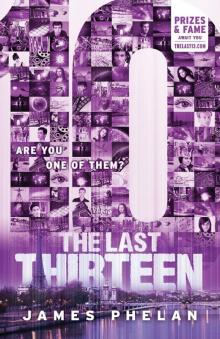 10
10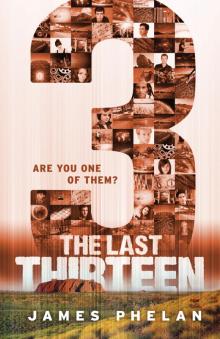 3
3 Survivor
Survivor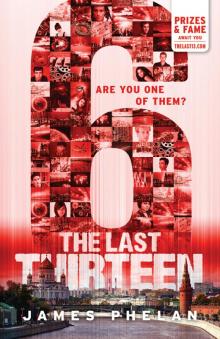 6
6 The Hunted
The Hunted Quarantine
Quarantine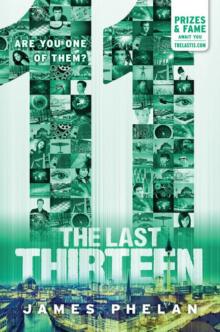 11
11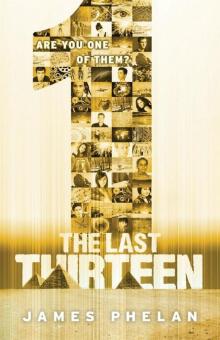 The Last Thirteen - 1
The Last Thirteen - 1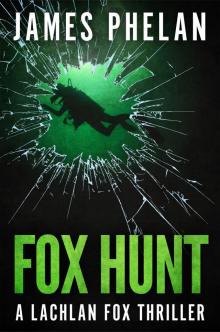 Fox Hunt
Fox Hunt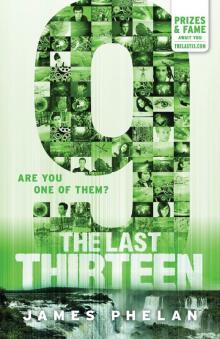 9
9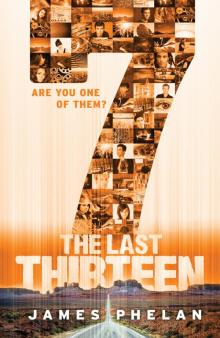 7
7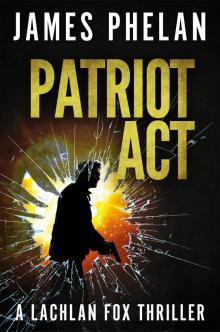 Patriot Act
Patriot Act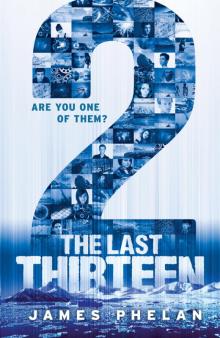 2
2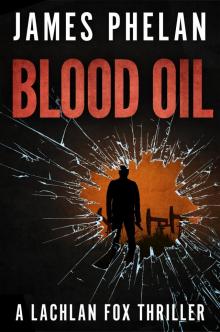 Blood Oil
Blood Oil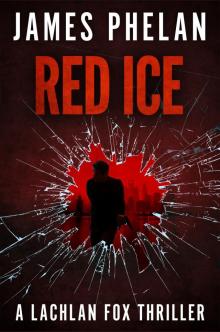 Red Ice
Red Ice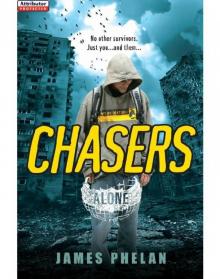 Chasers
Chasers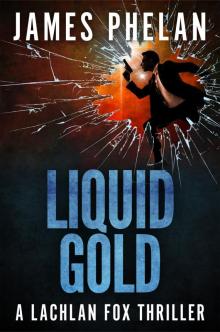 Liquid Gold
Liquid Gold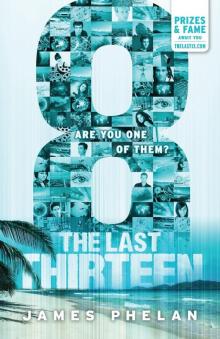 8
8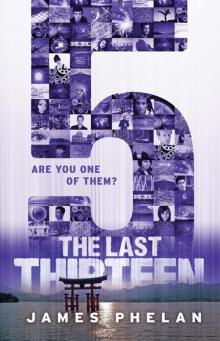 5
5 The Spy
The Spy Kill Switch
Kill Switch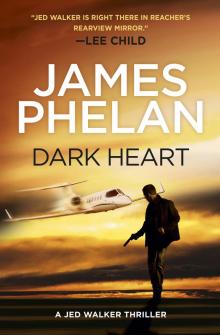 Dark Heart
Dark Heart